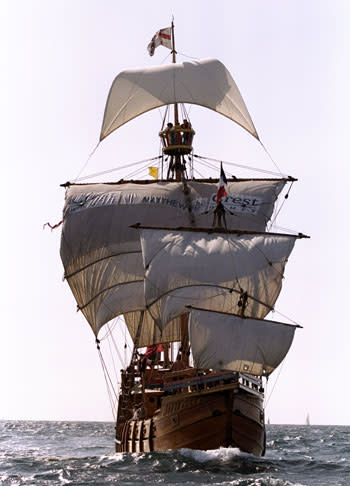 Daily Brew
Daily BrewDid English sailors visit Canada before Columbus ‘discovered’ New World?

The debate over how Europeans came to "discover" the Americas has gained fresh impetus among historians thanks to new research into the voyages of John Cabot, according to Postmedia News.
Prof. Francesco Guidi-Bruscoli of the University of Florence found intriguing tidbits of evidence that suggest Italian-born John Cabot, thought to have been the first to reach what is now Canada (Newfoundland) in 1497, may have had prior knowledge before he set sail.
The clue turned up as Guidi-Bruscoli researched the financing of a series of voyages between 1496 and 1498, when he disappeared.
The historian, working with British researchers, found a brief reference in a 516-year-old accounting ledger that points to support from a bank in Florence for Cabot's expedition to find "the new land." The revelation suggests the voyage was not a strictly English enterprise, as has been generally accepted.
"It opens a whole new chapter in Cabot scholarship, introducing an unexpected European dimension and posing new questions for the field," Guidi-Bruscoli writes in an article published in the scholarly journal Historical Research.
The Postmedia story says the reference suggests it's possible Cabot, who moved to England to pursue his goal of overseas exploration, may have already known about "the new land," and that English sailors had visited North America perhaps even before Christopher Columbus's "discovery" of the New World in 1492.
Historian Evan Jones of the University of Bristol, home of the Cabot Project, said the clue lies in the ledger's use of the word "the" instead of the indefinite "a" in referring to new land, suggesting they already knew it was there.
"I think we can be pretty certain that 'the new land' doesn't refer to the land Columbus had found - given that the royal patent Cabot was granted was pretty clear about excluding these territories," said Jones.
"So, I think the reference must indicate that the Bardi (bank) believed that Cabot was going off to discover/rediscover a land already known about. The use of 'new' suggests it was a land which had been found relatively recently - so this can't be a reference to the Norse voyages."
Norse voyagers are thought to have reached Newfoundland around the year 1000 and established a settlement at L'Anse aux Meadows.
(Getty Images photo of The Matthew, a replica of the 15th century ship sailed by John Cabot from Bristol to Newfoundland)


